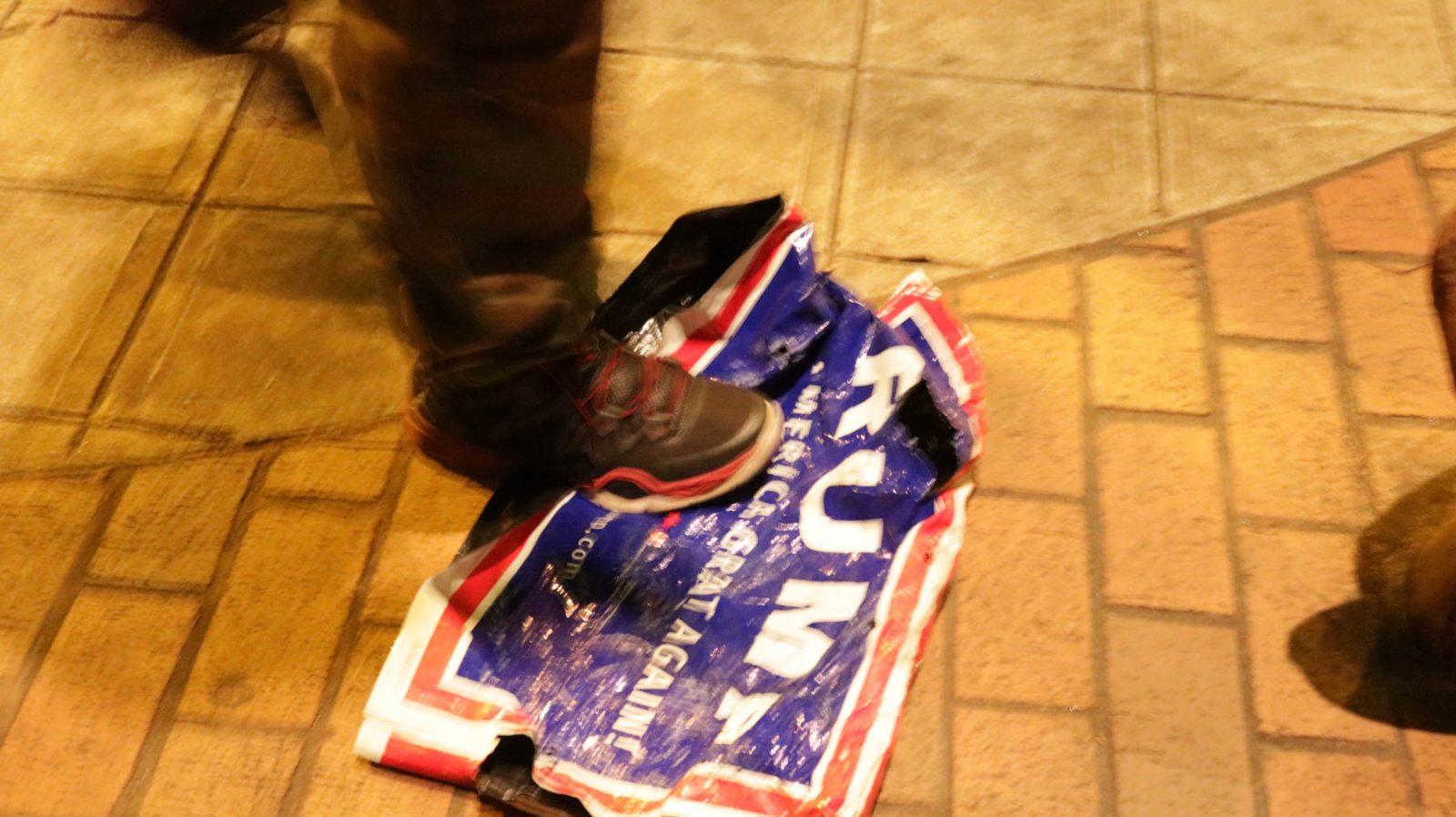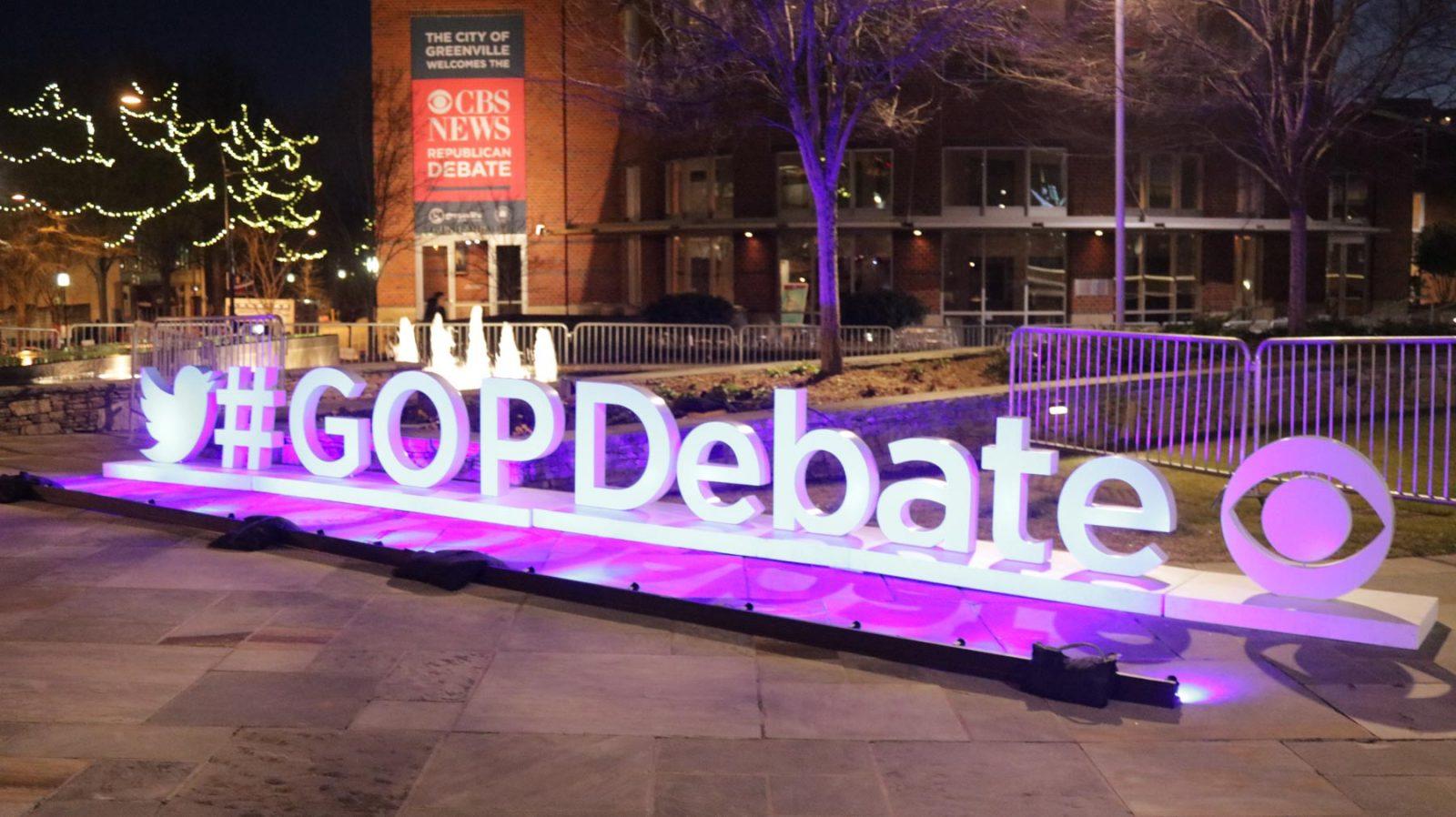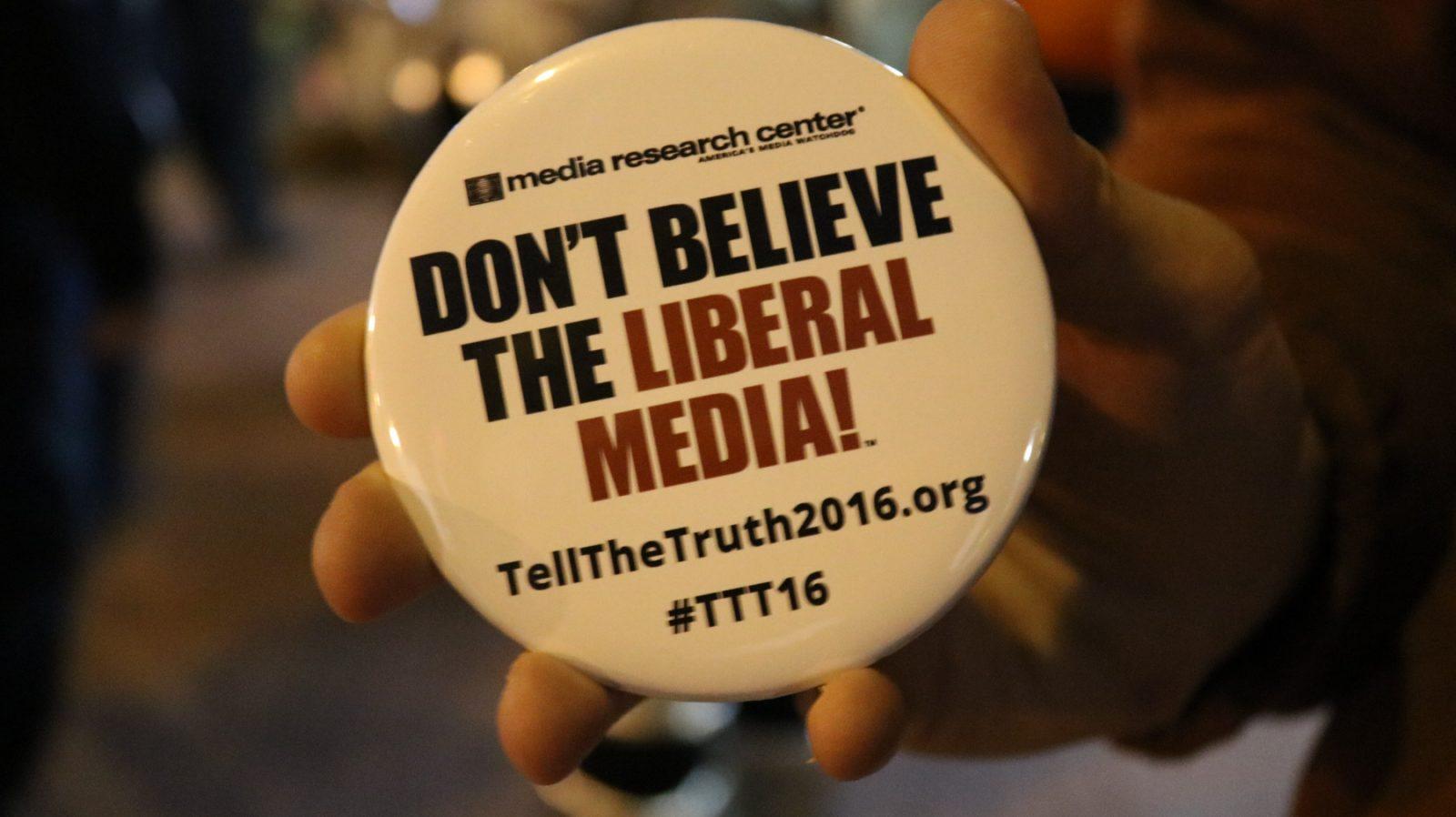They’ve all come to look for America
A protester outside the Republican Party (GOP) debate Saturday night in Greenville, South
Carolina. said America has never been this divided, even during the Civil War.
 |
| A participant of the Fight for $15 protest stomps on a Trump banner that had been resting on the ground outside the Peace Center on Feb. 13, 2016 in Greenville, S.C. Photo by Calla Hinton. |
“They’ve split us up into so many different groups, we’re all kind of attacking each other,” said Tim Arnold, a 49-year-old boat lift installer from Greenville, South Carolina. “We can’t unite, you know?”
The division among the GOP support came down to disagreements about which Conservative policies were most important.
“I don’t think that the debate over immigration or abortion is as important as some people think it is. I really would be more concerned with economics and policy,” said Allen Walker, an engineer from Atlanta.
Dominic Mason, 26, a pizza deliverer from Northern Virginia, supports Ted Cruz and specifically cited Cruz’s stances on abortion when asked why he supports the Texas senator.
“I think you have a separate human there,” Mason said. “Until they have the chance to make that choice for themselves, you can’t really go and say, ‘Oh, I’m going to kill this thing because it’s inconvenient.’”
Other GOP supporters backed candidates because of their popularity and prior political experience.
“He (Marco Rubio) is the candidate that can beat the Democrats,” said Katelyn Mullen, originally from Birmingham, Alabama. “Also, he has friends on both sides of the aisle and he has experience working with both sides.”
There were also individuals who were proponents of candidates not entrenched in the political sphere, but are instead new to it.
Madeline Mulkey, 20, is the director of the chapter of the Students of South Carolina for Ben Carson.
“He knows what it’s like to be an actual person, and he’s not some political brass that’s been working the system and wheeling deals for many years,” Mulkey said.
Some, however, are choosing not to vote for their No. 1 choice because of popularity statistics and religious reasons.
“Yeah, I support Trump,” said Jarrod Jones, 25, an employee at Northfolk Southern Railroad. “I prefer Ben Carson myself, but I know Trump’s going to be in the lead, anyways.”
Jones was asked what issue was most important to him.
Taking back America and making us strong to a Christian base, Jones said.
Not everyone present at the GOP debate came to support the Republicans. Dale Smith, a 33-year-old engineer from Greenville, stood on a corner holding a sign mocking Donald Trump’s appearance. Smith said he is fairly liberal and would like to see either Hillary Clinton or Bernie Sanders take office.
He said, though, he might vote in the Republican primary in order to deter the possibility of Trump becoming the Republican nominee.
“South Carolina is an open primary, so you can vote for either a Republican or Democrat, but not both,” Smith said. “So I might vote for a Republican that’s not Trump, and not Cruz.”
Smith had an unorthodox hope preceding the debate.
“A food fight during the debate would be awesome.”
Trevor Belt, a 25-year-old aid in the Ohio senate, said all the GOP candidates have ideas of merit, but he has issue with the tone of the other campaigns, aside from that of John Kasich.
“I think the tone of the campaign that Kasich is running is a lot more inclusive and a lot more geared toward problem solving, less toward demagoguery and blaming,” said Belt, a Columbus native. “His campaign so far has been very positive. I’m for him, not against others.”
Belt said politics is a full-contact sport and the candidates becoming a bit vitriolic is to be expected.
Donald Trump was one candidate whom some cited as being particularly antagonistic.
“We were really dismayed to see Donald Trump mock the reporter with disabilities,” said
Meg Dyar, 46, a stay-at-home mom from Pendleton, South Carolina.
 |
| CBS hosted the GOP Debate at the Peace Center in Greenville, S.C. on Feb. 13, 2016. Photo by Calla Hinton. |
Dyar, who has a 12-year-old son suffering from cerebral palsy, said she plans to vote for Jeb Bush, because she believes he has the strongest stance in support of people with disabilities.
Like Dyar, there were others who were decisive about choosing a candidate in regards to a specific issue.
Derek Gunby, a 35-year-old satellite communications operator from Greenville, said he strongly advocates for the Fathers’ Rights Movement, which pushes for family law reform at the federal and state level. According to Gunby, the legislative reform would state that in child custody cases, there would henceforth be a presumption of equal fitness to raise the child regardless of gender.
“When you are a father or a mother in the unfortunate situation should you separate, when you’re walking into a courtroom to fight for your children, you need to be on equal footing,” Gunby said. “We are nonpartisan. We are willing to throw our support behind any candidate who’s willing to tackle this massive issue.”
Arnold toted a large Confederate flag at the rally to represent a group of people he feels have been marginalized and discriminated against. He said he wants politicians to see the group still exists.
 |
| Buttons like these were carried amongst many a participant at the GOP rally on Feb. 13, 2016 in Greenville, S.C. Photo by Calla Hinton. |
“It (the Confederacy) was not a rebellion. It was a nation,” Arnold said. “We’re not allowed to have our God-given right to secede from the Union, so what you see here, this is a 155-year occupation.”
The largest gathering of the evening was the ‘Fight for $15’ protest. Dhruv Pathak was one protester.
“We’re out here demanding $15 an hour and the right to form a union,” Pathak said.
Paula Gibbs, 54, a home care worker from Atlanta, spoke about her passion and support toward the movement.
“Well, I’ve been a home care worker for over 30 years and we haven’t had a living wage increase in a lot of years,” Gibbs said. “We’re being underpaid and we deserve a living wage.”
As he stood on a bridge and watched the protest pass, Jones expressed his disagreement with the movement.
“I think it’s somebody just looking for another handout,” Jones said. “Half these people are probably sitting on their couches doing nothing, collecting from the government anyways, and they want to go work at McDonald’s, getting paid $15 an hour.”
Gibbs later expressed her feeling toward the specific issue of government assistance.
“We don’t like having to have to ask for assistance from the government when we work every day. That’s not right,” Gibbs said.
Pathak explained why the ‘Fight for $15’ proposition is beneficial for the American economy.
“The only way to stimulate the economy, the only way people buy houses, cars, all of these things, is if people have money, and the only way that can happen is if people get an increase in wages,” Pathak said.
Queen Tate, 49, an activist from Selma, Alabama, expressed optimism for the success of ‘Fight for $15.’
“You work, I work, we work hard for our money. We are not in slavery anymore,” Tate said. “This is a new day.”
This article was co-written with Charlie Heard and was originally published in The Blue Banner.


Comments